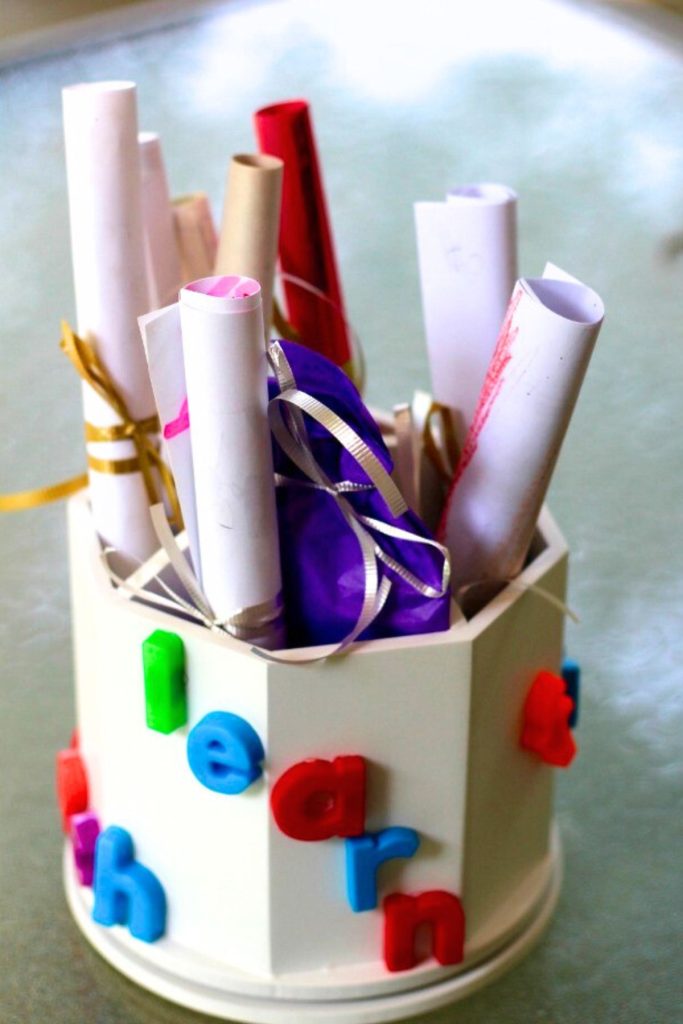PUBLISHED: | By Hilary Erickson



Are you looking to make sure you’re prepared for whatever life brings with a newborn? Likely, that’s going to be illness at some point — so I think these are 3 things that everyone should have on hand with a new baby. The big hope is that you’re not going to have to use them for a while, but you just never know and I think it’s smart to be ready!
Before we get started, obviously contact your provider before giving your baby ANY medication, and children under 2 months should be taken to a provider if they’re having fevers (not just given Tylenol). However, under their instruction you may need to use it.

But first, how do I know all of this? Hi — I’m Hilary. Most people know me as The Pregnancy Nurse® but before I started in L&D I used to work phone triage and as a nurse in the night emergency clinic for a busy pediatrician clinic. I saw lots of times that parents could use this medicine and didn’t have it on hand (or, times that they had WAY TOO MUCH ON HAND) so I’d love to get you started on the right foot.
I do have first aid list that I have as well you might find handy:

Tylenol / Acetaminophen
Tylenol is given to reduce pain, reduce fevers and inflammation.
Likely, you’re a competent adult reading this article so I won’t go into this more — but remember:
- Babies under 2 months who have fevers need to be seen (I always recommend a thermometer like this, none of the weird forehead or ear ones for newborns)
- Infant’s Tylenol and children’s Tylenol are now essentially the same medication. Talk with your provider about what is best for you and be sure to have a dosing syringe so you’re giving the right amount.
You might be wondering about Ibuprofen, it’s not recommended for babies for a few months (usually six months). I think it’s smart to have some on hand once they reach that age though.
Benedryl (liquid)
Again, unlikely you’re going to need this right away, but I think liquid Benedryl great to have on hand if baby was to suddenly become allergic to something.
As always, you’ll want to contact your provider or poison control if baby ingests something they’re not supposed to before dosing this, but it’s great to have on hand.
Honestly, liquid Benedryl is great to keep on hand because if even an adult were to have a big allergy attack they may not be able to take pills.
Diaper Cream
Ok, not really a “medication” but this is something you’ll want to have around.

Note: Many newborns bum’s do NOT like wipes. I often made my own for a few weeks (using paper towels and water) until that skin hardened up a bit and then I switched to regular wipes. You could also try something like water wipes.
I see some parents use this on every diaper change, but I just use it if I see redness.
I like to have a Desitin zinc-oxide based cream to have on hand to protect healing skin, and something similar to A&D ointment to help the skin heal as well (we love this stuff).
I did see a pediatrician on tiktok remind us that you don’t want to entirely wipe away the Desitin at each diaper change, just remove any that has poop on it and then leave the rest — which I thought was a good tactic.
Ok, those are the main ones to have on hand. Here are a few others I recommend with kids:
- Vick’s / Menthol type chest rub — we use this on chests (and sometimes feet) with coughs in kids over 4 mo — prior to that they should see a provider before using.
- Ibuprofen for kids over 6 months of age.
- Simethicone (often called Mylicon) Drops – if baby seems to have gas sometimes these can be helpful (again, ask your pediatrician before giving them to baby).
- Vaseline – It seemed to have a bad rap for a while, but it can help common skin irritation as much as the expensive stuff. I also like Aquaphor (I have heard it’s mostly Vaseline with some lanolin).

Things I do NOT recommend to have on hand for kids:
- Cough or cold medicine, pediatricians don’t recommend these for kids (studies show they aren’t helpful, and can be harmful).
- Stomach medicine like pepto bismal – not helpful in kids.
- Teething rub — most pediatricians don’t recommend this because it can block the gag reflex and kids can choke (unfortunately — teething isn’t fun, tylenol and ibuprofen if they’re old enough are your best options — along with a cold teether).
And, the nurse in me can’t not say that here are a few medications EVERY family should have on hand:
- Aspirin — if you think someone is having a stroke or a heart attack 911 may tell you to have them chew some tablets, you should have some on hand (could come in handy for a neighbor or a visitor as well).
- Tylenol & Ibuprofen. Mom will likely want these after delivery as well.
- Benedryl – if you don’t take it often the liquid is fine, but can be very helpful for a sudden-onset allergy for anyone in the home.
And, be SURE to make sure these medications are up high in a place that baby (who will surprise you how fast they become a climbing toddler) can’t get to. It’s also super important to impress upon kids of all ages that medication isn’t something you take lightly (or like candy — looking at you gummy vitamins) without talking to your parent or a provider.
I also have a whole post on organizing your medicine cabinet (and you may be surprised that your bathroom might not be the best place to keep your meds).
If you haven’t had your baby yet — please get your MIND (and your medicine cabinet) prepared right here.




